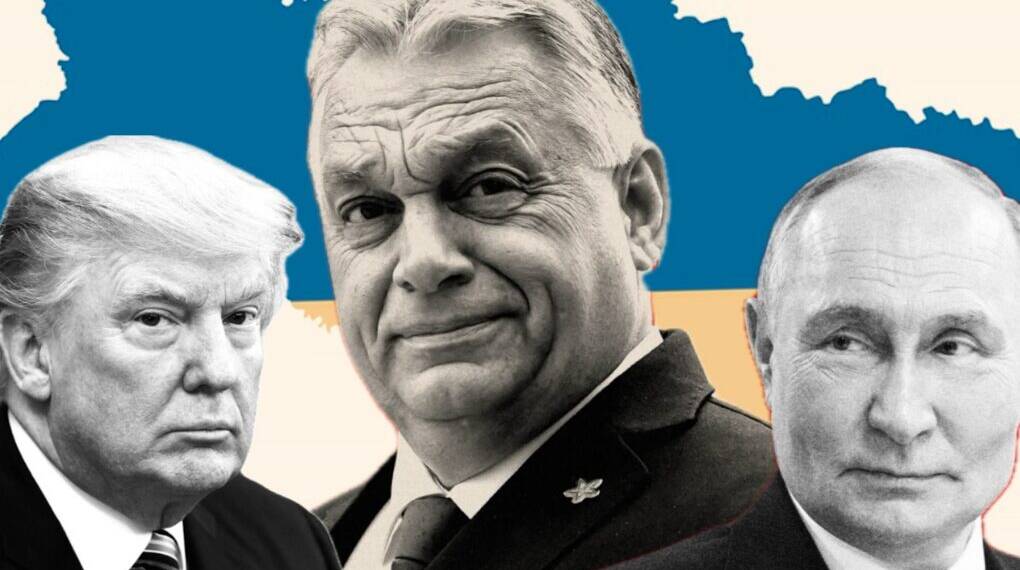Hungarian Prime Minister Viktor Orbán recently delivered a candid and elaborate critique of U.S. President Donald Trump’s role and effectiveness in advancing peace negotiations to end the Russia-Ukraine war. Speaking at the MCC Fest in Esztergom in mid-2025, Orbán expressed profound disappointment that the peace he optimistically anticipated for much of the year did not materialize, attributing this failure largely to Trump’s inability to unify European leaders behind a common approach.
High Hopes for Peace and Economic Planning Upended
Orbán began by reflecting on his early optimism for 2025, expecting that following Trump’s inauguration, the U.S. president would rapidly consolidate political will and outline a clear roadmap to peace, possibly within three months. Hungary’s entire 2025 budget planning was premised on the assumption that conflict would ease, expecting positive economic growth with controlled inflation. Instead, the war continues unabated, forcing Orbán’s government into difficult budgetary redeployments and sustained economic uncertainty. He described the current fiscal reality as a “budget of war,” acknowledging the strain on national priorities amid ongoing conflict.
Trump’s Weakened Political Clout and the Transatlantic Rift
Central to Orbán’s critique is the assertion that Trump was not politically strong enough to coerce European leaders into unanimous alignment on the peace agenda. Unlike initial hopes, Trump failed to “make everyone dance to the same tune,” exposing a transatlantic rift wherein U.S. leadership appeared ambivalent. According to Orbán, the U.S. stance essentially boiled down to: “Peace, and if there is no peace, then we will just leave you to your own devices.” In contrast, European leaders largely prioritized continuing military support to Ukraine to secure a victory against Russia on its territory. This divergence, Orbán argued, represents the main blockage to progress rather than Russian or Ukrainian intransigence.
Europe’s Divided War Aims and Suicidal Trajectory
Orbán characterized the European pursuit of military victory in Ukraine as “suicidal” and unsustainable. He warned that even short extensions of the current course are fraught with peril, describing it metaphorically as a path that may be “passable, but then there’s a cliff at the end.” The Hungarian Prime Minister underscored financial realities, stating unequivocally that Europe, and Hungary specifically, lacks the resources to simultaneously buy expensive American weapons and sustain indigenous military industry development. He emphasized that attempts to do both “we don’t have that kind of money,” pointing to severe fiscal constraints exacerbated by the war.
Economic Stagnation and Need for Redirected Resources
Beyond politics, Orbán argues that the entire European economic project has come to a standstill due to prolonged conflict and the associated uncertainties. Rather than funneling limited funds into arms procurement and war efforts, he insists that investment should instead focus on rebuilding and stimulating the economy. The stagnation poses risks not only to Hungary but also to the broader region’s social cohesion and future prosperity.
Shifting Public Opinion and Political Realignments
Orbán observed a gradual but unmistakable shift in European public opinion away from a liberal, pro-war posture toward a growing appetite for peace and diplomacy. If this trend continues, it may increase pressure on policymakers to rethink conflict strategies. His remarks imply that political leaders who continue to pursue aggressive military support for Ukraine risk alienating their electorates over time.
Orbán’s Broader Skepticism Toward NATO Expansion and Militarization
This critical perspective extends to broader NATO and EU policies. Orbán has repeatedly voiced opposition to NATO expansion into Ukraine, arguing it is a fundamental cause of the conflict and an unacceptable provocation to Russia. He also objected to the European Union’s “rabid militarization,” especially the diversion of pandemic recovery funds into defense budgets. In his view, such militarization is strategic overreach that ignores the limits of Europe’s economic and political capacities.
Advocacy for Diplomatic Solutions and Hungary’s Neutrality
Orbán champions a pragmatic diplomatic path, advocating negotiations directly between Washington and Moscow as the only realistic route to peace. He cautions that expecting Kyiv to dictate terms is naive, given its position and dependence on Western military aid. Hungary’s neutrality and refusal to supply arms to Ukraine reflect this stance, aligning with his emphasis on national interests and regional stability over ideological confrontation.
Orbán places the conflict in a wider civilizational framing, lamenting that while “White, Christian Europeans kill each other on the Russian-Ukrainian front,” Europe simultaneously faces disruptive immigration from different cultures—a situation he describes as “abnormal.” This broader cultural narrative shapes his political approach and resonates with his domestic policies focused on preserving national identity.
Calls for Realism, Unity, and Economic Prioritization
Viktor Orbán’s elaboration portrays a complex mix of disappointment, realism, and strategic calculation. He calls attention to the limits of U.S. leadership under Trump in mobilizing Europe, the dangers inherent in militarized escalation without consensus, and the urgent need to recalibrate priorities toward peace and economic recovery. His warnings about unsustainable policies and fractured alliances serve as a sobering reminder of the intricate challenges facing Europe and the transatlantic community in navigating the ongoing war and its aftermath.
Orbán’s position remains controversial but is increasingly influential in debates over Europe’s trajectory amid the Russia-Ukraine war, signaling potential shifts in policy as public opinion and economic pressures mount.







